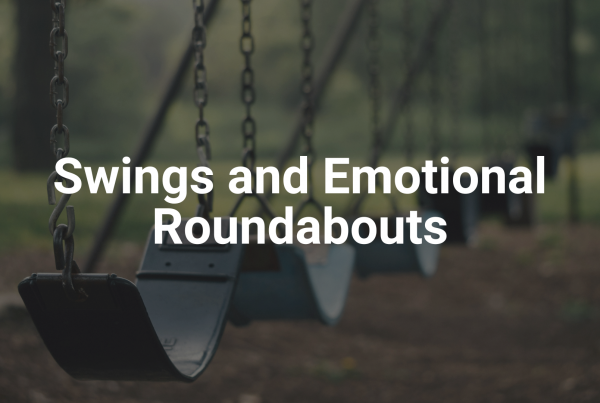Authors: Dr. Abbie Maroño
Published: June 30th, 2025
“I was never really insane, except on occasions when my heart was touched.” This quote from Edgar Allan Poe has always resonated with me. When it comes to matters of the heart, we often find ourselves making decisions that aren’t entirely rational or well-thought-out. Of course, we do—because we’re human. And to be human is to crave deep connections with others. To love and to feel empathy are some of our most beautiful qualities, but they can also cloud our judgment.
This is why it’s so easy to advise our friends to walk away from toxic relationships, confidently pointing out the manipulation or red flags we see in their partners. Yet, when it comes to our own relationships, we struggle to recognize those same toxic patterns with the same clarity.
Indeed, in the early stages of a relationship, it’s common to overlook warning signs—those subtle “red flags” that indicate someone might not be right for us, or worse, that they could be harmful. So, this begs the question, what should we be looking out for to protect ourselves from falling into unhealthy patterns?
Too Much, Too Quickly
Disney movies often romanticize the idea that when we meet “the one,” we’ll lock eyes and instantly know they’re our perfect match. While this is a lovely thought, reality often tells a different story. If someone showers you with excessive flattery, gifts, and intense affection right from the start—known as love bombing—it can be a red flag for manipulation. This overwhelming attention can feel flattering, but research suggests it is often a tactic used to foster dependency and control. Indeed, studies in the field of personality disorders show that love bombing is common among individuals with narcissistic tendencies, who use affection to create rapid emotional attachment. Over time, this intensity often shifts to emotional withdrawal or controlling behaviors, leaving the partner confused and more likely to tolerate red flags as they yearn to return to the initial idealized phase.
Moreover, the intensity of early affection can cloud your ability to notice inconsistent communication or behaviors. If your partner fluctuates between periods of intense contact and sudden withdrawal, it may indicate emotional manipulation or a lack of emotional stability.
Empathy Above All
Empathy is arguably one of the most critical traits a partner can offer. It serves as the foundation of healthy, emotionally fulfilling relationships. A partner who minimizes your feelings, ignores your emotions, or crosses your boundaries is often exhibiting low emotional intelligence or narcissistic traits. These traits are also closely linked to a lack of kindness, disrespect, and inconsiderate behavior, as individuals with low empathy often struggle to understand or value their partner’s needs.
For example, imagine sharing something deeply personal or upsetting with your partner, and instead of validating your feelings, they dismiss your concerns with comments like, “You’re overreacting,” or “It’s not that big of a deal.” This can leave you feeling unheard and invalidated, creating emotional distance. Partners with low empathy may also fail to adjust their behavior after you’ve expressed discomfort. For instance, if you’ve repeatedly mentioned that certain jokes or actions upset you, and they continue to engage in those behaviors, it signals a lack of consideration for your feelings. Consequently, it comes as no surprise that research consistently shows that people who lack empathy have difficulty forming deep, satisfying relationships. They are unable or unwilling to genuinely care about their partner’s well-being, leading to emotional disconnection and, often, conflict.
Excessive Jealousy and Control
Not all jealousy is inherently negative; in fact, mild jealousy can indicate that someone values the relationship and wants to protect it. Accordingly, moderate jealousy can sometimes motivate positive behaviors, like open communication and reassurance between partners, reinforcing the emotional bond. However, when jealousy becomes unwarranted and excessive, it often signals deeper issues. For example, if someone displays jealousy without cause or becomes paranoid, it could reflect their own insecurities or even their own unfaithful tendencies, projecting those behaviors onto their partner.
Excessive jealousy, especially in the early stages, is often a precursor to controlling behaviors or abusive tendencies, often leading to behaviors aimed at controlling the partner’s actions or social interactions. Attempts to limit contact with friends and family—often framed as protective or caring—are actually warning signs of coercive control, a behavior frequently observed in emotionally abusive relationships. Isolating a partner is one of the first steps toward establishing control and dominance, which research consistently identifies as a hallmark of abuse.
Healthy relationships thrive on mutual respect and understanding that each partner is their own person, not someone else’s property. However, individuals with severe narcissistic traits often view their partners as extensions of themselves or their possessions. When the partner does not act according to their expectations, they may respond with aggression, belittling, or attempts to control. This belief in ownership erodes the fundamental respect necessary for a healthy, loving partnership.
Time to Leave
Recognizing the signs of unhealthy behaviors early in a relationship is critical because the longer you stay, the deeper your emotional investment becomes, and the harder it is to leave. As discussed, signs like inconsistent behavior, low empathy, and excessive jealousy often point to deeper issues like emotional manipulation, control, and a lack of genuine care. In the beginning, these red flags might feel like minor concerns, especially if they’re masked by periods of affection or connection. But these behaviors typically escalate over time, making the relationship increasingly toxic. The longer toxic patterns go unchecked, the more damage they do to your self-esteem and mental well-being.
Removing yourself at the first signs of toxicity not only protects your emotional health but also allows you to invest in relationships that are built on mutual respect, empathy, and emotional stability. You deserve to be in a relationship where you feel safe, valued, and truly respected. Settling for anything less only diminishes your worth—and everyone is deserving of a love that uplifts, rather than undermines, their sense of self.
References
Bhona, F. M. D. C., Gebara, C. F. D. P., Noto, A. R., & Lourenço, L. M. (2020). Intimate partner violence: Controlling behavior and triggers of aggression. Paidéia (Ribeirão Preto), 30, e3032.
Buss, D. M., & Shackelford, T. K. (1997). Susceptibility to infidelity in the first year of marriage. Journal of research in personality, 31(2), 193-221.
Campbell, W. K., & Miller, J. D. (2011). The handbook of narcissism and narcissistic personality disorder (pp. 309-318). Hoboken, NJ: John Wiley & Sons.
Davila, J., Mattanah, J., Bhatia, V., Latack, J. A., Feinstein, B. A., Eaton, N. R., … & Zhou, J. (2017). Romantic competence, healthy relationship functioning, and well‐being in emerging adults. Personal Relationships, 24(1), 162-184.
Davis, M. H., & Oathout, H. A. (1987). Maintenance of satisfaction in romantic relationships: Empathy and relational competence. Journal of personality and social psychology, 53(2), 397.
Dutton, D. G., Starzomski, A., & Ryan, L. (1996). Antecedents of abusive personality and abusive behavior in wife assaulters. Journal of Family Violence, 11, 113-132.
Marazziti, D., Di Nasso, E., Masala, I., Baroni, S., Abelli, M., Mengali, F., … & Rucci, P. (2003). Normal and obsessional jealousy: a study of a population of young adults. European Psychiatry, 18(3), 106-111.
Ritter, K., Dziobek, I., Preißler, S., Rüter, A., Vater, A., Fydrich, T., … & Roepke, S. (2011). Lack of empathy in patients with narcissistic personality disorder. Psychiatry research, 187(1-2), 241-247.
Stark, E. (2007). Coercive control: How men entrap women in personal life. Oxford University Press.
Sweet, P. L. (2019). The sociology of gaslighting. American sociological review, 84(5), 851-875.





